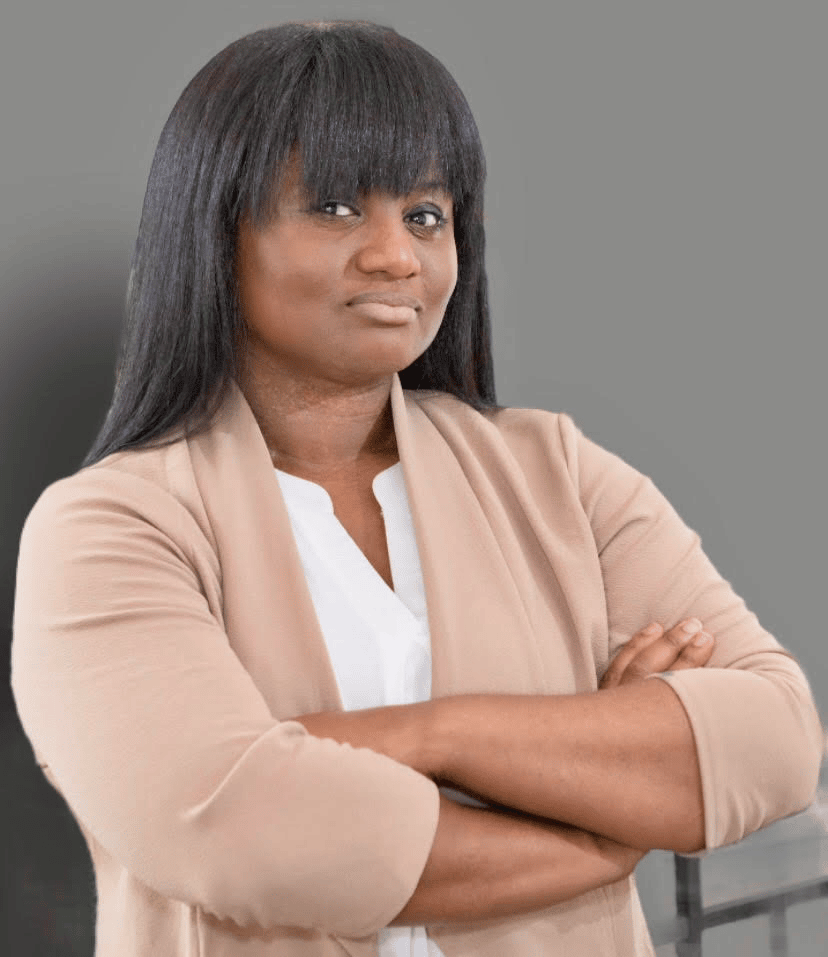
Fellowships are for everyone, and this Blind Awareness Month, we’d like to spotlight an incredible opportunity for blind and visually impaired leaders. The Blind Leaders Development Program, offered by the American Foundation for the Blind (AFB) provides leadership training, mentorship, and in-person conferences to selected Fellows with the aim of creating an upward trend in the employment rate of people with visual impairments.
We recently spoke to Montreece Hardy, a current AFB Fellow, to learn more about how her fellowship experience is enabling her to connect with other visually impaired leaders from across the country, develop the practical and professional skills to lead with empathy, and ultimately solidify her long-term career goals.
Tell us about your background and professional experiences. What led you to the AFB Blind Leaders Development Program?
I currently work full-time as an executive assistant for Bellwether (formerly Bellwether Education Partners), and my background is a mix of leadership support and small business advising, sprinkled with some professional editing, technical writing, and creative writing projects, as well as advocating for diversity, health equity, and accessibility inclusion in the workplace.
So how did everything lead to me finding the American Foundation for the Blind’s Blind Leaders Development Program? A very tough mental and emotional healing journey. In 2019, while going through a divorce and being unemployed, I was diagnosed as legally blind. Given all of these challenges, I was searching for connections with like-minded individuals who could understand my new normal and my desire to continue being the natural-born leader, advocate, and driven professional that I’ve always been.
But I struggled with confidence. I struggled with everything because all of a sudden I had to figure out how to do all of this with the lights out. Only 44 percent of people living with blindness (or on the blindness spectrum, as I like to say, because most people don’t think of blindness as a spectrum) are employed in the U.S. Those statistics felt like they were stacking up against me, so I went in search of something, any sort of education or professional development opportunities to help me understand how to be a professional and simply learn to live and work differently than before, and eventually lead differently as well.
I found the American Foundation for the Blind’s Blind Leaders Development Program in 2020 and was accepted into their inaugural cohort. But once March 2020 hit and the world changed due to the pandemic, I found myself being impacted by multiple issues at once. I was a single working parent of virtually schooling kids who was directly impacted by police violence that resulted in the loss of a dear family member. It was just a lot of challenges and social injustices, and I felt like everything was directly impacting my life. Unfortunately, that caused me to leave the program eight months in.
But I stayed in touch with the AFB, and they encouraged me to apply again in the future. I did, and I was accepted. So I’m really grateful to now finally be completing the Blind Leaders Development Program. It’s an incredible time to be a part of the fellowship because this is the first year the program is able to be in-person.
Tell us more about the benefits of this program. What compelled you to join and what are some of the skills you’ve gained as a result?
If you’re a person who has experienced acquiring a disability that has accelerated very, very quickly in your life, no matter what it is, it’s very easy to fall into a limited mindset and start thinking that there’s just nothing that you can do at all with your life, regardless of whatever you might have even accomplished before.
One of AFB’s mottos is “living in a world without limits,” and that is what caused me to pursue them. In addition to the fact that they’re offering all of this coaching, confidence building, and networking, they were also offering access to top leaders who just so happen to also be living with blindness. That sounded great to me.
Since joining the program, I’ve learned alongside individuals who are interested in me as a person and not how the rest of the world tends to look at a person living with blindness or any sort of disability: as just the label of their disability. That in itself has been priceless and extremely rewarding. It’s helped me also to understand the importance of truly feeling understood and known in professional spaces, and that has informed what I want my leadership to look like.
It’s also been especially helpful to see firsthand how people who are totally blind navigate professional environments using assistive technology, like audio-reading hardware and software. It’s really helped me understand other blind people’s experiences because they can be very different from mine, and this knowledge will ultimately help me build more inclusive work environments.
Not necessarily to pun, but I’m a punner: it’s been an eye-opening experience. Every time I get together with the members of my cohort, whether it’s virtually or in-person, I’m reminded of how extremely different everyone’s experiences are. I’ve been learning how to really exemplify empathy and use that to inform my interactions with others. By doing that, I believe I am doing the best I can to become an inclusive leader and create belonging in the spaces where I lead and support.
Can you give us a general overview of the Fellowship and what is included in the program?
The program is for one year and there are three primary in-person convenings. We recently had our initial convening in Kentucky, where we had workshops at the American Printing House for the Blind. It was an amazing experience learning about the history of Braille and seeing the studios where listening books are created. All of these things are tied one way or another to resources for people in the blind and visually impaired community. We’ll also come together for a conference in Washington, D.C., and another one later in the year.
The rest of the time, all of our work is virtual. We follow a curriculum and learn about strategic leadership models by having group discussions about case studies and scholarly articles.
The program also offers something called Spotlight on Success, where we connect with successful entrepreneurs, executives, and other types of professionals who are on the spectrum of blindness. Meeting these people and hearing their stories has been so encouraging, especially with the inevitable struggle with imposter syndrome.
We also do a lot of writing in this program — a lot of writing — as well as goal setting and planning, which have helped me adjust my own personal mission and vision statement. Through this brainstorming, I’ve been able to set concrete goals for the next 10 years of my professional career, including pursuing my PhD. My goal is ultimately to impact a major community movement here in Houston, Texas, where I’m based, and to pursue the TED Fellowship.
So it’s things like that. Understanding and learning about flexibility. I keep emphasizing empathy, because it’s one of the greatest things that I’ve had to learn. And then also, the importance of asking questions in your leadership, instead of leading with statements and concrete decisions. Really asking questions to create value and help other people feel seen and known. All of these things are some of the biggest takeaways I’ve picked up within the past few months of being involved in this program.
What advice do you have for other blind and visually impaired leaders who might be considering the Blind Leaders Development Program, or other professional fellowship opportunities?
To anyone who lives with a disability of any form, and anyone with intersectional life experience in more than one marginalized groups, I’d like to share my little acronym: CARE. This stands for
- Remaining CURIOUS
- Being AUTHENTIC to your experience
- RESEARCHING to nurture a growth mindset
- And, no matter what life throws your way, be EMPATHETIC
All of that basically encompasses CARE, and I believe it’s imperative to our own successes in life and how we can motivate others. We do life differently as people living with disabilities and people living on the blindness spectrum. Some things may take a little more time and a little bit of a learning curve, but there are so many resources available these days compared to 20 or 30 years ago, which is the absolute truth.
For the scholarships, fellowships, internships, and other professional opportunities that don’t yet exist, it’s up to us to get out there and create them for others with similar lived experiences. Educational and professional successes do not have to be limited to physical and mental ability, gender, or privilege. So my advice to anyone is to go get all that you can. It is definitely out there for the taking. Help someone else along the way. I’m certainly available to help anyone.
As a final point, I’ve stayed connected to and followed ProFellow for years. It’s such a vast resource, and I hope that through this article I can help connect others with the AFB Fellowship. Using the ProFellow Database and resources, staying connected, keeping up to date, reading, subscribing, all of that: It’s helpful, and I believe that it will help somebody make a difference. I know, because it’s helped me.
Executive Assistant and DEI&A Consultant Montreece Hardy is a multi-passionate
Learn about another disability advocate’s journey in Becoming an International Disability Justice Advocate: My Year as a Fulbright U.S. Student Program Fellow to India.
© ProFellow, LLC 2022, all rights reserved.